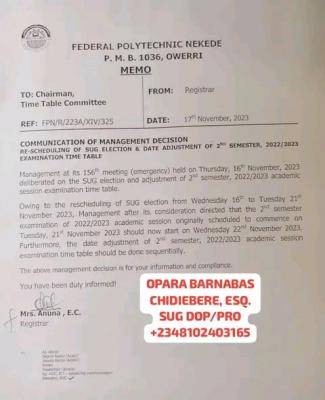
Australia is one of the countries in the world that offers high quality and rewarding study experience. With an environment that is friendly and accommodating, Australia hosts some of the choicest universities across the world for international students including Nigerians.
If you wish to pursue your studies as an undergraduate or postgraduate student in any University in Australia, it is important you know the best way to go about it as well as what is required of you which is the essence of this article.
This article will guide you on the steps to take if you wish to pursue your studies in any of the universities in Australia.
Choice of course and institution
Applicants are advised to first make their research to determine the course and institution that offers such courses in Australia before beginning the application process.
The list of universities and their websites can be accessed via this link: http://www.australianuniversities.com.au/list/
Once you’ve made a decision on a course and institution you need to verify if you met the requirements for admission.
Admission Requirements
Undergraduate – To gain entry into an Australian undergraduate course you will need to have Senior Secondary Certificate Examination (WAEC, NECO), GCE O’level, and Diploma/Advanced Diploma.
Postgraduate – For postgraduate courses, you will need a bachelor’s Degree with Honours; your institution may take research ability or relevant work experience into consideration.
There may be additional requirements Depending on your chosen course of study and institution there may be additional requirements. You are to verify the additional requirements your institution may demand for your intended course via their website or portal for international students.
You may be required to go through taking a Foundation course; also referred to as bridging study. This will take through intensive courses that will help you meet the needed requirements. It usually lasts for one year.
English Requirements
Nigerian applicants are required to provide evidence of English language proficiency before applying. An acceptable score in the International English Language Test System (IELTS) or Test of English as a Foreign Language (TOEFL) is required. It is advisable to verify from the university’s website the acceptable English test score in such university.
Application process
Applying to the University of your choice can be done via the following ways:
- Applying directly to the school: To apply directly to any university, you may need to download the application form from the university’s website or complete it online.
- Applying through an Australian education agent or representative: Some of the institutions may have international offices in Nigeria. In that case, you can apply to the university via the international office or the institution’s education agent in Nigeria. You will get to know if your school of interest has such a provision in Nigeria via the school’s website.
You will be required to provide some supporting documents during your application. The documents that will be required vary depending on the school, the course you are applying for and the qualification to be obtained. The most important documents include:
-Certificates of your previous academic qualification
– English language proficiency Evidence
-Evidence of research work or previous work experience. (Mainly for postgraduate studies)
All documents must be presented in English language
Your application will attract a fee that you can pay online if you are applying online or to the institution’s education agent when submitting your application form.
Deadlines
For most of the courses, you may apply any time before the date of course commencement; however, there are courses that have specific deadlines. It is advisable to check the website of your school of interest to confirm the specific deadline for your course. For students from Nigeria, it is advisable that they apply 3 months to the commencement of their course of study to allow them enough time for Visa processing.
Receiving your Letter of Offer
Once your application is successful, you will receive a letter of offer from the school. It is a kind of contract between you and the school This Letter of Offer confirms that you have been offered admission by the school. It will indicate the course you have been offered to study, the conditions, fees you will be required to pay as well as other relevant information. You are advised to carefully read the letter of offer before accepting it. Take a closer look at the rights and privileges it contains and the refund arrangement in case you end up bot completion your course in that particular school. If you are not satisfied with the terms and conditions do not accept it. It is advisable to keep the Letter of Offer safe. You may need it if you have to make a claim against the University for any breach of rights or privileges.
You are to accept the letter of offer by signing and sending it back to the school either through mail or via email (scanned copy) if that would be acceptable by the school.
Confirmation of Enrolment
After accepting the Letter of Offer and have made the necessary initial payment, the school will send you the ‘Electronic Confirmation of Enrolment’ (eCoE) via email. This will give details on when your course of study will commence, total fees you will be required to pay for that course and the duration of your course. You are required to keep this safe also as you will need it during the Visa application.
After you have completed all these processes, you will need to apply for a Students’ Visa. It is important to ensure you meet requirements for a Student Visa before accepting an offer and paying any tuition fees.




